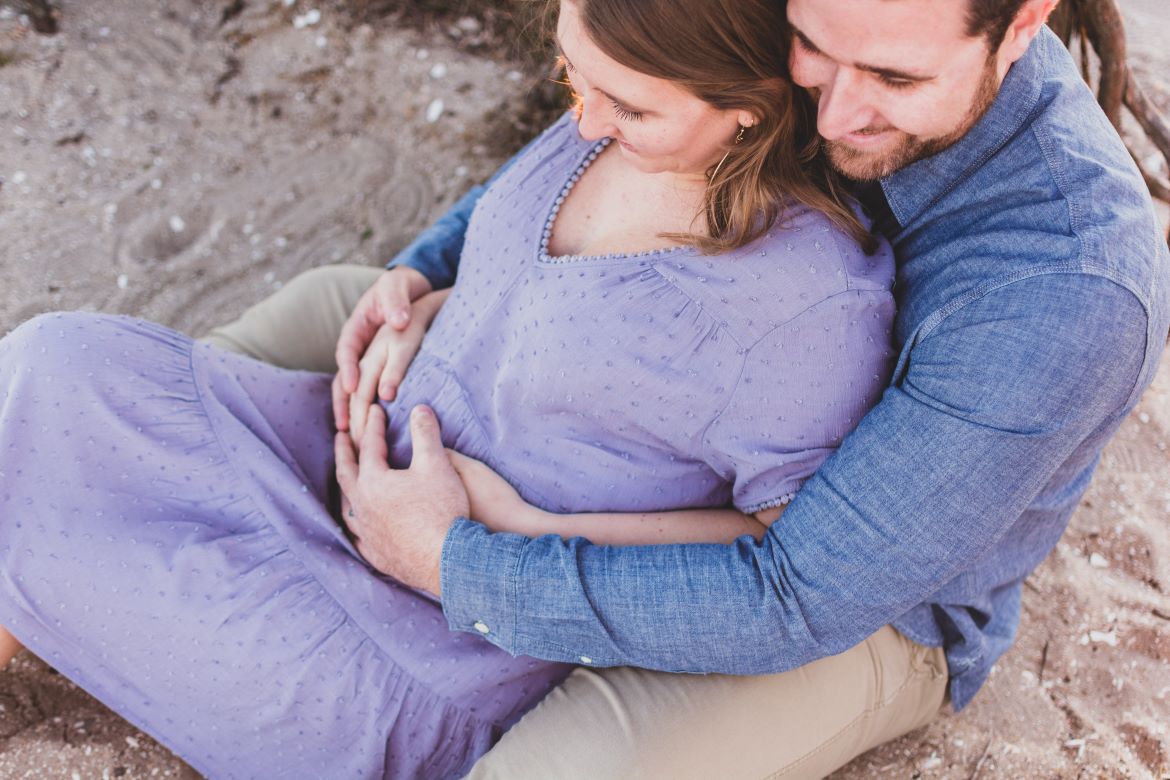By Jennifer Robertson
It’s hard when all you want to do is feel hopeful for the future. That this baby growing inside you is going to make it into your arms. It would be nice to talk about WHEN your baby arrives, not IF your baby arrives. But pregnancy loss makes it hard to hold onto hope. No, it’s not just you, nor is there something wrong with you. It’s completely understandable that hope seems a little out of reach some days.
But before we dive into hope and how you can lean into it a little further, first we need to clarify a few things.
Firstly, hope is not the enemy. I really feel like it has a bad reputation and gets blamed for a lot of things that aren’t really it’s fault. You may have blamed it for all the hurt and grief you felt in a previous miscarriage. We are under the misguided assumption that it hurts more if you hope. But it doesn’t. A loss hurts regardless. So if you’re staying clear of hope because you’re trying to protect yourself from future hurt, unfortunately it won’t work. Some pain is unavoidable.
Secondly, if you’re assuming that hope is an outward feeling of safety and excitement, it isn’t always. Hope doesn’t always feel like you want to shout it from the rooftops. Sometimes it’s a little nudge, a flash of your future, and a moment of joy. If you’re searching for a big monumental feeling, you may be missing it.
We are under the misguided assumption that it hurts more if you hope. But it doesn’t. A loss hurts regardless
So here are a few things to remember when it comes to hope.
Try to amplify the moments of hope by leaning into them. On the days when you go for an ultrasound, or get your test results back and feel that relief – expand on it. It could be doing something brave, like making a token baby purchase, or taking a picture of your baby bump, or telling one person that you’re pregnant. Do some extra things to ride that wave of hope, all the way to the shore.
We all have that fear of getting to the end of our pregnancy, and regretting the fact that we were too scared to feel any kind of joy or appreciation. So, let’s put it into perspective. We are more likely to emphasise and remember the bad moments as opposed to the good. We focus on the bad things more. For example – if you went to a party and everyone was complimenting you on your new hairstyle, and then one person said they didn’t like it, which comment would you remember the most? Yep – you’d probably ruminate on that one horrible comment. And the reason why this happens is because our brain is naturally wired to go to the negative. We have around 50-70,000 thoughts going through our head each day (wonder why you’re exhausted?), and around 90% of them are negative. So it’s natural that’s what you remember more. But it’s not our reality.
Our language also encourages it. How many times do you come home from work and say you had a terrible day? In reality, you may have had a relatively normal day, but one shitty thing happened. And now we’re grouping them altogether and telling ourselves we had a bad day.
So let’s change our language around how we speak about this, and create some simple habits.
Instead of telling yourself that you’re always anxious or always scared, remind yourself that you have moments of fear and anxiety. But it’s not all the time. A lot of the time you’re not. You’re distracted or absorbed in a Netflix series. The story we tell ourselves about how we’re experiencing this really matters.
We have around 50-70,000 thoughts going through our head each day (wonder why you’re exhausted?), and around 90% of them are negative. So it’s natural that’s what you remember more.
And this is definitely not saying you don’t have moments of anxiety and fear – you do! But it’s about putting it into perspective.
Another exercise you can try is to list down 3 moments when you felt hopeful that day. And remember – hope doesn’t have to be an outward feeling. It could merely be a moment where your mind wandered to the future and you could picture yourself holding your baby in your arms (before you caught yourself), or when your language accidentally changed to WHEN, not IF. It could be a moment when you caught yourself rubbing your belly, or speaking to your bump. Those moments all count, and they are evidence that you DO have hope. Write them down. Because it’s important that we remember those just as much, or even more than, the scary moments.
You can also lighten the load of the scary and anxious times by not giving them extra power or adding suffering to them. A lot of the time we punish ourselves for feeling a certain way. We feel guilty. But it’s ok to acknowledge those moments where you feel fear. This is our brain’s way of telling us to proceed with caution. That there may be danger ahead. And there is nothing wrong with that. You provide these emotions more power when you add the guilt and punishment and suffering. You stay stuck in them. When this happens, try saying – I am scared in this moment, and that’s ok.
And finally, the BIG thing to help you amplify that feeling of hope in your pregnancy is a gratitude practice. This provides you with a balanced perspective. It allows you to acknowledge the fear AND the things or moments in your life that you are grateful for.
So how do you create and implement a gratitude practice into your life that feels genuine?
I’m going to share the technique that I use, so this isn’t just something you tick off your to-do list, because someone told you that you should be grateful. It’s important that the things you do actually make you feel better. Otherwise, what’s the point, right?!











